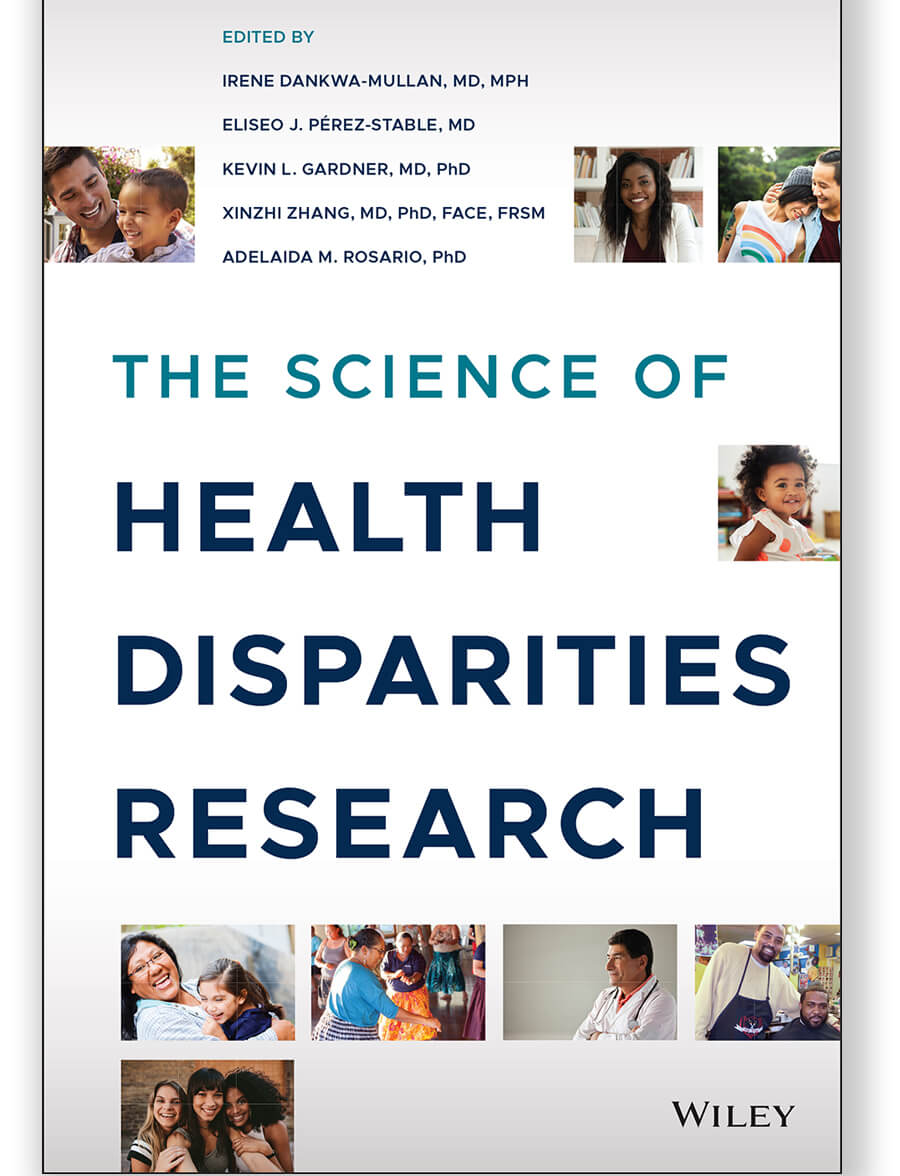The Science of Health Disparities Research

Over the years, research in minority health and health disparities has evolved from a descriptive understanding of what health disparities are and who is most affected, to the discovery of the complexity of factors involved in determining health and its outcomes by race/ethnicity and socioeconomic status. Scientific approaches to addressing these factors lead to:
- Improved understanding of mechanisms.
- More options to implement interventions to reduce disparities.
- Greater access to health care.
- A more equitable future.
The Science of Health Disparities Research is an in-depth volume for comprehensive information on conducting clinical and translational health disparities studies.
NIMHD researchers—along with leading experts from around the country—have written this 26-chapter textbook to cover the spectrum of health disparities research. This important new resource:
- Defines the field of health disparities science.
- Explains basic definitions, principles, and concepts for identifying, understanding, and addressing health disparities.
- Suggests new directions in scholarship and research.
- Discusses population health training, capacity building, and the transdisciplinary tools needed to advance health equity.
With contributions from more than 100 recognized scholars and leaders in the field, The Science of Health Disparities Research describes how using an interdisciplinary approach can reduce inequalities in population health studies, the importance of adding community engagement to the research process, and the ways that rigorous research can promote social justice. It also features examples from contemporary research studies, highlights conceptual models, and includes a broad range of scientific perspectives. The lifelong work of the scientists, clinicians, and community-based researchers and their contributions to the scientific literature on minority health and health disparities research provide a strong foundation for this text.
“The chapters contained herein illustrate the importance and feasibility of systematic, rigorous inquiry for understanding the specifics of minority health and health disparities. They also convey the importance of the lessons learned for science in general: for discovery, for generalizability, for advancing theory, for enhancing measurement, for improving investigative methods, for promoting attention to neglected areas of research, and for diversifying the scientific work workforce.”
-Spero M. Manson, Ph.D., Distinguished Professor of Public Health and Psychiatry at the University of Colorado School of Public Health
Intended Audience
This textbook is useful to a variety of audiences. Besides being an essential resource for trainees and clinical researchers in health services, behavioral science, population science, public health and basic science as it intersects with clinical studies, The Science of Health Disparities Research appeals to health care policy makers, epidemiologists, intervention scientists, and clinicians, particularly those working with minority, vulnerable, or underserved populations, health disparity scientists, community-based researchers, and research institutes.
Chapter Topics
- Definitions, Principles, and Concepts for Minority Health and Health Disparities Research
- Racial/Ethnic, Socioeconomic, and Other Social Determinants
- Applying Self‐report Measures in Minority Health and Health Disparities Research
- Applications of Big Data Science and Analytic Techniques for Health Disparities Research
- Healthcare and Public Policy: Challenges and Opportunities for Research
- Addressing Disparities in Access to High-quality Care
- Role of Electronic Health Records and Health Information Technology in Addressing Health Disparities
- Recruitment, Inclusion, and Diversity in Clinical Trials
For questions about the textbook, please email NIMHDinfo@NIMHD.NIH.gov.
Page updated Oct. 16, 2023
















